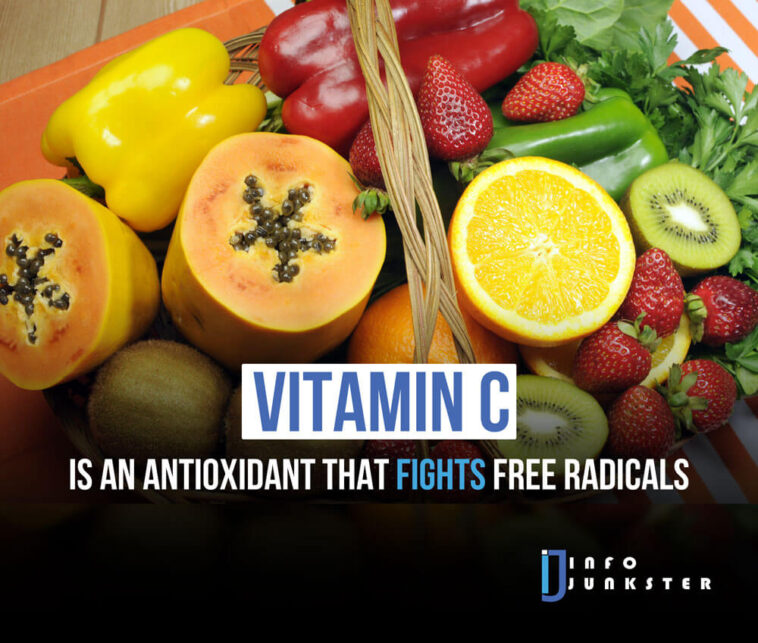Vitamin C is a necessary nutrient that is important for numerous body processes, such as collagen formation, wound healing, and immune system support. It is also a potent antioxidant that can aid in defending cells against harm brought on by free radicals.
A free radical is an unsteady molecule that can damage cells and contribute to chronic diseases like cancer, heart disease, and Alzheimer’s. By providing an electron to free radicals, it aids in their neutralization. This mechanism stabilizes the free radical, preventing it from harming cells.
The body cannot store water-soluble vitamins, so they need to be ingested often. Men should consume 90 milligram’s of it each day, while women should consume 75 milligram’s. Nevertheless, certain people might require additional it, particularly those who are exposed to a lot of environmental stresses or have specific medical disorders.
You can obtain it from food in a variety of ways. Citrus fruits like oranges, grapefruits, and lemons, berries like strawberries, raspberries, and blueberries, tomatoes, and green vegetables like broccoli and Brussels sprouts are all excellent sources of it.
There are other it supplements on the market. Before taking a vitamin C supplement, you should consult your doctor nevertheless, as taking too much it might have negative consequences like diarrhea, nausea, and vomiting.
You can help to make sure that you are getting enough of this crucial ingredient by eating a nutritious diet and taking a vitamin C supplement if necessary. Vitamin C can help protect your cells from free radical damage, which may lower your risk of chronic diseases.
Here are some additional details about how vitamin C helps fight against free radicals:
- Vitamin C, a potent antioxidant, neutralizes free radicals by giving them an electron.
- Free radicals are unstable chemicals that have the potential to harm cells and play a role in the emergence of chronic illnesses including cancer, heart disease, and Alzheimer’s disease.
- The body needs to ingest water-soluble it often because it cannot store it.
- For adults, a daily dose of 90 milligram’s of it for men and 75 milligram’s for women is advised.
- People exposed to environmental stresses or with medical conditions may need more vitamin C.
- Citrus fruits, berries, tomatoes, and green vegetables are just a few examples of foods that are rich in it.
- There are other it supplements on the market, but it’s vital to consult your doctor first because taking too much it might have negative side effects.
Here are some of the health benefits of vitamin C:
- Improves immunological function
- Facilitates wound healing
- Encourages collagen synthesis
- Guards against cell deterioration
Can lower the risk of developing chronic diseases Here are some tips for getting enough it:
- Consume a balanced diet rich in fruits and vegetables.
- Think about consuming a vitamin C supplement.
- Discuss your needs for vitamin C with your doctor.
Keep up with the latest news updates and trending topics at info Junkster. For nutrition and health related hot topics please click here.




